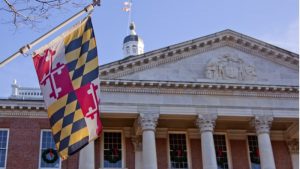California Gov. Gavin Newsom has announced 18 new broadband projects the state will undertake in an effort to close the digital divide.
The Tennessee Department of Human Services (TDHS) has announced an expansion of the state’s MyTN mobile app.
Data is one of the most important tools in responding to the COVID-19 pandemic. Citizens need accurate data to understand the virus and access vaccinations while public health officials need up-to-date information to track COVID-19 and evaluate immunization effectiveness. MeriTalk spoke with Jim Daniel, who leads state and local public health for Amazon Web Services (AWS), to learn how access to public health data has improved and how it may change in the future.
The University of Southern Mississippi (USM) is using a grant from the Governor’s Emergency Education Response (GEER) fund program to make Learning Blade software available to all middle schools statewide free of charge.
In the wake of a Government Accountability Office (GAO) report encouraging the Departments of Education and Homeland Security (DHS) to update K-12 cybersecurity guidance, several Democrat senators have written to both agencies urging them to heed GAO’s recommendations, and establish critical infrastructure council structures to advance the issue.
The COVID-19 pandemic has forced most state and local governments (SLGs) to undergo rapid modernization. For many, modernization has meant adopting a new suite of software services to meet citizen needs as the government shifted to remote work and digital service delivery.
Maryland Gov. Larry Hogan announced that the state has appointed its first chief privacy officer and its first chief data officer.
The Federal Communications Commission (FCC) has allocated an additional $42 million in the second round of funding for its COVID-19 Telehealth Program, bringing the program total to $166 million in funding.
The General Services Administration’s (GSA) Technology Transformation Services (TTS) has selected 14 projects to receive funding from the American Rescue Plan Act of 2021 to develop government-wide citizen-facing services to help recover and rebuild from the COVID-19 pandemic.
The Federal Communications Commission (FCC) announced that it is ready to authorize nearly $709,060,159 in its fourth round of funding for new broadband deployments through the Rural Digital Opportunity Fund.
Recent
-
 Trump Signs Order to Preempt State AI Laws and Push Single Federal Framework
Trump Signs Order to Preempt State AI Laws and Push Single Federal Framework -
 Government, Industry, Academia Collaboration Fuels AI Progress
Government, Industry, Academia Collaboration Fuels AI Progress -
 Indiana DOE Partnership Targets STEM, Digital Learning Tools
Indiana DOE Partnership Targets STEM, Digital Learning Tools -
 States, Schools Harness Data and Workforce Programs to Combat Fraud, Cyber Threats, and Service Outages
States, Schools Harness Data and Workforce Programs to Combat Fraud, Cyber Threats, and Service Outages









